Point on System Selection
Seismic monitoring system has
a variety of kinds and functions.
Here are some points to select
the one for a particular purpose.
1.History record is the most important information for verification
When earthquake occurs big enough to activate seismometers, the judgment for equipment stop or emergency announcement must be verified with the history records. If there is no history recorded, it is hard to know if the judgment is correct or not. To save, the time of record must be correct, so optional system for automatic time correction is recommended as well.
Our seismic monitoring system is
50cases of seismic history are recorded on display.
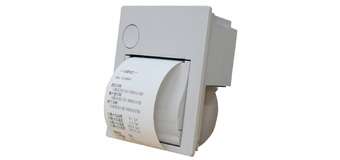
Printer (μTP-58E)
Prints acceleration values, measured seismic intensity and alarm occurrence times from the seismometer to the printer via RS-232C cable.
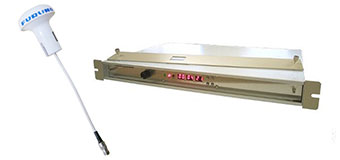
GPS antenna (GPA-017SC)/time correction device (SA-259G-IMV)
Automatic time correction using GPS.
2.Use alarm output
Redundancy is recommended for the number of contact in alarm output of seismic monitoring system. To prevent the secondary disaster, well structured anti-earthquake measures must be considered by connecting outputs to shut off system, evacuation announcement, emergency light or opening of emergency door.
Our seismic monitoring system is
Flexible alarm outputs up to 10steps
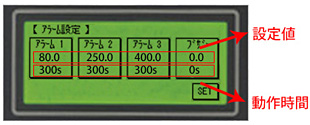
3.All directional detection is recommended
It is common for seismic monitoring system to use two directional vector (vertical and horizontal).
However, the actual earthquake wave occurs in 3 direction, so the level may differ if it is only horizontal or 2 vector composition.
Thatʼs why all directional detection is recommended for near field earthquake.
Our seismic monitoring system is
All directional detection is adopted
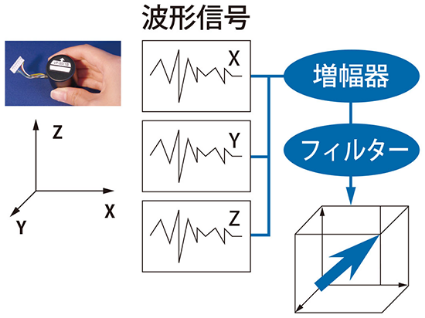
4.2 out of 3 unit method
Seismic monitoring system is a high reliable measuring instrument. However, it cannot be assured that malfunction or breakdown never happen. To avoid huge recovery cost, setting up of 3 units is highly recommended.
Our seismic monitoring system is
Optional multiple control unit is avilable
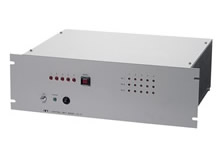
Multiplex control unit (2 out of 3) CU-5
A device to increase the reliability of the alarm contact output for control and shutdown of seismographs, which sends out an alarm when two out of three units are triggered.
5.Cautions for specification selection
Power supply
A power supply that operates from an emergency power source must be selected, taking into account the possibility that the power supply system may be cut off by an earthquake.
Our seismic monitoring system is
Select from AC 100V or DC24V. We can also offer a seismic monitoring system with an uninterruptible power supply built-in.
Cables
As seismometer sensors can measure even very small tremors, it is recommended that they are anchored to a hard, level concreted or similar surface, where vibration is as unlikely as possible. The appropriate cable length should be selected after checking the distance from the sensor to the processing unit.
Our seismic monitoring system is
IMV’s seismic monitoring sensor does detection to digital processing. In standard composition, it can be extended to 100m.
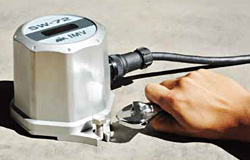
6.Malfunction measure of seismic monitoring system
The system malfunction due to external shock vibration or electric noise may cause serious trouble because it will cause inaccuracy in emergency response. Against physical shock motion such as bumping into something or falling object, the filtering function which cuts the frequency of more than 10Hz is useful. The protection cover on the sensor is useful to avoid the impact from outside. Against electric noise such as thunder, lightning or fluorescent light, setting some time log in seismic detection makes it less susceptible to the momentary and short period cycle occurring electric noise.
Our seismic monitoring system is
It has a measure against malfunctions caused by external shock or electrical noise.

